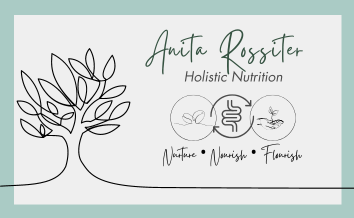|
"The best bridge between despair and hope is a good night's sleep." (Cossman) Getting a good nights sleep is crucial to our functioning, good health and even weight loss. Disrupted sleep is linked to many poor outcomes including a shorter life expectancy, development of cancer, poor productivity and is very important in the management of weight (linked to adult and childhood obesity). (1-5). There are many ways of presenting with sleep issues: * unable to fall asleep quickly * awakening shortly after falling asleep and then being unable to resume sleeping * repeatedly awakening throughout the night * inability to sleep at all * too much sleep. Our body clock We operate on a circadian rhythm which means every 24 hours many of our physiological processes are affected by our biological rhythm. The cycle is most predominantly synchronised with cycles of light and dark however it is also influenced by meal times, stress, exercise and ambient temperature. Have you ever been so sleepy reading a book in a chair or watching television before bed but as soon as you move to bed you are wide awake again with your second wind and often hungry?! Why should we get to sleep before 10 pm? 10 pm is such an important time on our daily clock. Our body produces a sleep initiating hormone called melatonin. It is produced in the pineal gland in the brain in response to the lack of light. At around 10pm, our bodies go through a transformational phase following the rise in melatonin secretion. Melatonin continues to rise and it is in this early phase of sleep where our body undergoes repair and restoration until it reaches a peak between 2am and 4am. It is so important that if we aren't asleep, that we are relaxed both mentally and physically at 10pm to allow this shift to happen. If we are not relaxed and prepared for sleep, we get a second wind which is where our brains become really active and we have a rise in energy. We may also go in search for the nibbles at this time. Melatonin is an important anti-oxidant (it goes around and mops up any free radicals produced during the day in the body) and it prevents cellular damage and DNA damage. Melatonin has protective effects and actually inhibits tumour growth in carcinogenesis (6-7). If we are awake past 10pm, the removal of free radicals is significantly impaired. The body uses a lot of energy to perform these processes so if we are using this energy as "mental energy" instead of using it for metabolic energy it is more likely that we are alert and in a state of vigilance during the night and groggy during the day.
Awake between 1am and 3am? According to Traditional Chinese Medicine, the liver meridian is most active between 1-3am. This is when the liver is most active in detoxification. The liver is also responsible for the construction of enzymes used in almost every body activity. When the liver becomes sluggish, toxins remain in the body causing congestion in the colon, the kidneys, the lungs and our skin. Liver toxicity can occur due to poor food quality, toxins in the environment, pharmaceuticals and also malnutrition. Eating good quality foods and supporting the liver with its functioning can overcome toxicity. Eating foods which are organically sourced and minimally processed are important in lowering the toxic burden. Ginger has been shown in preclinical studies to have hepatoprotective effects and it protects against alcohol, acetaminophen, fungicides, tetracycline, heavy metals and organophosphorous compounds (essentially many of our pharmaceuticals, pesticides and environmental toxins).(8) The importance of sleep on our health Oxidative stress is a disruption in the balance between the production of free radicals and the defences of antioxidants. Free radicals can be produced from normal cell metabolism or from external sources such as pollution, pharmaceuticals, radiation, cigarette smoke, perfumes and pesticides. When the body is faced with an overload of free radicals that cannot be destroyed by antioxidants, this is when oxidative stress develops. Many chronic and degenerative illnesses such as cancer, autoimmune disorders, ageing, cardiovascular diseases, cataracts, ulcerative colitis , emphysema, and neurodegenerative diseases such as Alzheimer's and Parkinson's disease are implicated in the process of oxidative stress. Antioxidants are the compounds used to combat or mop up the free radicals and these are both produced naturally in the body and are also obtained through our foods. (9-11) Sleep is an essential part of the free radical mop up process. Melatonin is not only the sleep promoting hormone, it is important in immune defense also a very powerful antioxidant. This is especially important in the brain where about 20% of the body's oxygen is being used as brain cells produce energy. When asleep, the brain is less active which provides the opportunity for the free radical scavengers to mop up the free radicals that have been produced while awake. Sleep disturbances and insomnia can disturb this clean up process. Melatonin production gradually diminishes with age and this is the believed culprit of the degenerative physiological changes associated with ageing.(9) Things we can do to help our sleep 1. Getting to bed by 10 pm at the latest to maximise healing, repair and restoration. 2. Taking 15 minutes to wind down before sleep without screens (phones, tablets, TV etc.) concentrating on breathing and relaxing the mind helps to speed up the time taken to fall asleep. 3. TV and other screens are neuro-stimulants. Although we may think that they are a way of relaxing, they actually stimulate brain activity and are counterproductive to sleep. 4. Avoid a large meal at dinner and avoid foods with sugar for dinner or dessert which are responsible for the hypoglycaemic reaction in those important hours. 5. Reduce artificial flavours, preservatives, processed foods and caffeine which are stimulants which can reduce melatonin and the secretion of growth hormone. 6. Ensure your room is completely dark. Any form of light stimulation interferes with the formation of melatonin (including screens) which further interferes with growth hormone secretion. 7. Taking time out to re-connect with nature; watching the sunrise and sunset can support the reset of the daily circadian cycle. Our modern world has completely thrown our circadian clocks out of whack! 1. Sigurdardottir L, et al. Sleep disruption among older men and risk of prostate cancer, Cancer Epidemiology Biomarkers and Prevention, 2013 22(872)
2. Christer Hublin, et al, Sleep and Mortality: A Population-Based 22-year follow up study, Journal Sleep, 30(10):1245-1253 3. Sekine M, et al, A dose response relationship between short sleeping hours and childhood obesity: Results of the Toyama Birth Cohort Study, Child: Care, Health and Development, 2002, 28(2):163-170 4. Patel SR,Hu FB, Short sleep duration and weight gain: a systematic review, Obesity, 2008;16:643-53 5. Rosekind et al, The cost of poor sleep: workplace productivity loss and associated costs, JOEM, 2010;52(1) 6. Tamarkin L, et al, Melatonin inhibition and pinealectomy enhancement of 7,12-demethyobenz(a)anthracene-induced mammary tumours in the rat, Cancer Reserach, 1981;41:4432-4436 7. Tamarkin L, et al, Decreased nocturnal plasma melatonin peak in patients with estrogen receptor positive breast cancer, Science, 1982, 216;1003-1005 8. Haniadka R, et al, Ginger protects the liver against the toxic effects of xenobiotic compounds: preclinical observations, Journal of Nutrition and Food Sciences, 2013;3:226 9. Reiter R, Oxidative damage in the central nervous system: protection by melatonin. Progress in Neurobiology, 1998, 56:359-384 10. Reiter R, et al, Pharmacological actions of melatonin in oxygen radical pathophysiology, Life Science, 1997, 60:2255-2271 11. Reiter R, Melatonin: Lowering the high price of free radicals, Physiology, 2000, 15:246-250
5 Comments
|
Anita RossiterHolistic Nutritionist. Categories
All
Archives
April 2019
|





 RSS Feed
RSS Feed